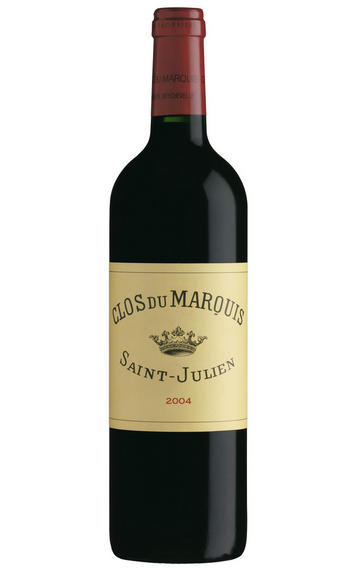
About this WINE
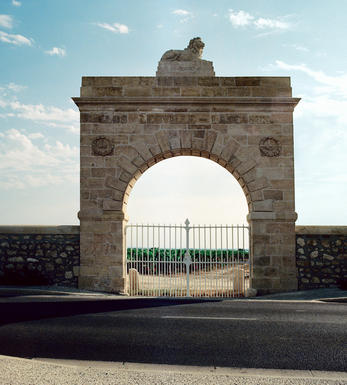
Chateau Leoville Las Cases
Château Léoville Las Cases is one of the largest and oldest classified growths in the Médoc. It is the largest of the 3 Léoville properties and now without doubt the leading estate in St-Julien.
Léoville Las Cases's 97 hectares of vineyards are superbly sited on gravelly-clay soils with the largest plot being surrounded by a stone wall and stretching between the village of St-Julien and Château Latour. The wine is a Cabernet Sauvignon dominated blend (65%), and is matured in oak barriques (70-80% new) for 18 months.
Léoville Las Cases produces arguably the most exotically perfumed wine in the Médoc and this can be partially attributed to the must being fermented at lower than average temperatures, which leads to its youthful aromatic richness being retained. On the palate it is powerful and concentrated and marvellously well-balanced.
Léoville Las Cases is a 2ème Cru Classé in name but produces 1er Cru Classé quality wines.
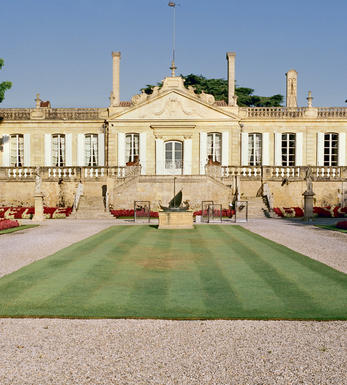
St Julien
St Julien is the smallest of the "Big Four" Médoc communes. Although, without any First Growths, St Julien is recognised to be the most consistent of the main communes, with several châteaux turning out impressive wines year after year.
St Julien itself is much more of a village than Pauillac and almost all of the notable properties lie to its south. Its most northerly château is Ch. Léoville Las Cases (whose vineyards actually adjoin those of Latour in Pauillac) but, further south, suitable vineyard land gives way to arable farming and livestock until the Margaux appellation is reached.
The soil is gravelly and finer than that of Pauillac, and without the iron content which gives Pauillac its stature. The homogeneous soils in the vineyards (which extend over a relatively small area of just over 700 hectares) give the commune a unified character.
The wines can be assessed as much by texture as flavour, and there is a sleek, wholesome character to the best. Elegance, harmony and perfect balance and weight, with hints of cassis and cedar, are what epitomise classic St Julien wines. At their very best they combine Margaux’s elegance and refinement with Pauillac’s power and substance.
Ch. Léoville Las Cases produces arguably the most sought-after St Julien, and in any reassessment of the 1855 Classification it would almost certainly warrant being elevated to First Growth status.
Recommended Châteaux: Ch. Léoville Las Cases, Ch.Léoville Barton, Ch Léoville Poyferré, Ch. Ducru-Beaucaillou, Ch Langoa Barton, Ch Gruaud Larose, Ch. Branaire-Ducru, Ch. Beychevelle
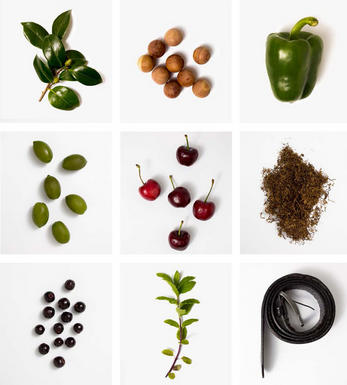
Cabernet Sauvignon
The most famous red wine grape in the world and one of the most widely planted.
It is adaptable to a wide range of soils, although it performs particularly well on well-drained, low-fertile soils. It has small, dusty, black-blue berries with thick skins that produce deeply coloured, full-bodied wines with notable tannins. Its spiritual home is the Médoc and Graves regions of Bordeaux where it thrives on the well-drained gravel-rich soils producing tannic wines with piercing blackcurrant fruits that develop complex cedarwood and cigar box nuances when fully mature.
The grape is widely planted in California where Cabernet Sauvignon based wines are distinguished by their rich mixture of cassis, mint, eucalyptus and vanilla oak. It is planted across Australia and with particular success in Coonawarra where it is suited to the famed Terra Rossa soil. In Italy barrique aged Cabernet Sauvignon is a key component in Super Tuscans such as Tignanello and Sassicaia, either on its own or as part of a blend with Sangiovese.


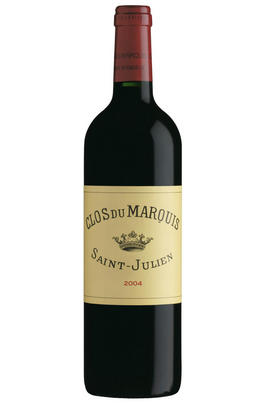
Buying options
Add to wishlist
Description
Not the second wine, but in fact a completely separate offering from Château Léoville-Las-Cases. Clos du Marquis always offers an enticing and aromatic aroma. This has the classic Claret restrain alongside succulent, sweet fruit. It is showing its maturity very well with baked plums, redcurrant, a meaty density and black spice core. The finish is very long and I am dreaming of a bottle with roast beef.
Laura Atkinson, Private Account Manager
wine at a glance
Delivery and quality guarantee